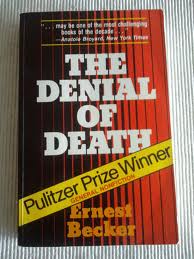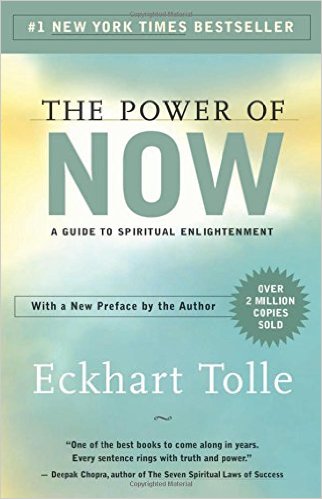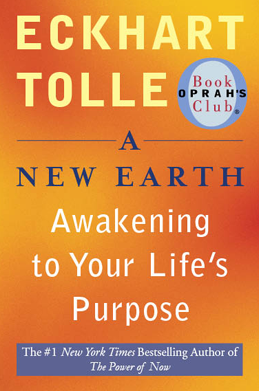|
home | what's new | other sites | contact | about |
|||||
|
Word Gems exploring self-realization, sacred personhood, and full humanity
How the Fear of Death
return to "Evolution Controversy" contents page
One need venture not very far into the evolution debate to encounter a shocking level of incivility. Why should this be? As outsiders to the dispute, we're not interested in drama and family feuds. We came to learn about science, about how things truly work in the universe. We were prepared to enjoy a good clean dialectic with each side presenting its thoughtfully garnered facts and research, but also carefully considering what the other side is saying. elenchis Dr. Daniel Robinson, in his lectures on the history of philosophy, speaks of the Greek word “elenchis” which means “argumentation.” If true forms of reality cannot be reached by the untrustworthy guides of sensory experience, what’s left? The Greeks felt that a high-minded dialectical or argumentative approach, with others and with the self, would best serve a quest for the truth. (See the "Education of the Founding Fathers," how this approach was used with great success 250 years ago.) However, it must be stated, “elenchis” is not a rhetorical device, not debating tricks to gain an upper hand or to embarrass an opponent, but a pure-of-heart way of thought, an honest way of life, designed to discover the truth. I began to admire this ideal so much that I named one of the characters in my “Love In The Afterlife” series “Elenchus.”
all the charm and grace of a Middle-Ages witch-burning But, in the evolution debates, for the most part, we do not find the spirit of “elenchis.” We do not find calm, thoughtful, and careful consideration of the facts. Instead, we find mentalities who would be more at home at a Middle-Ages witch-burning, gawking at and cheering on the atrocity, believing themselves to have vindicated and defended some misguided notion of Science or God. Hurray for our side. To see what I mean, go to any website article or youtube video featuring evolution and survey the comments. Within short compass, you will discover violations of many of the classic “Clear Thinking” precepts. Even worse, so much of the back-and-forth will be heavily laced with venom, rancor, and all manner of toxic response. Why should it mean so much? We might have our opinions concerning the origin of life but so what? -- why should this devolve to a hurling of invective, witch-burning, demands for censorship, and even threats to life-and-limb? Clearly, there’s something more, something deeper, going on here than just a science/god discussion.
the curtain rolls back to reveal -- the fear of death Those of you who are well read in the Word Gems articles might already know the answer. At base level, at rock-bottom of this chaos, we will find the fear of death on parade. The great psychologists explain it to us. For extensive discussion on this issue, you’ll want to review such writings as, “1-Minute Essay on Fear,” “The Reason Behind The Reason,” "Hoffer's True Believer," “Freudian Transference and the Inner Child,” “1-Minute Essay on Repression,” "The Essence of Cultism," "The True and the False Self," “Ferenczi and the Inner Slavishness,” and others. But allow me to offer a brief redaction suited to our review of the evolution controversy.
*******************************************
J.P. Morgan: "A man always has two reasons for the things he does - a good one, and the real one."
Think back to one of those unfortunate times when you were drawn into a religious argument. Remember how you, or the other person, grew apoplectic, more than furious, possibly, coming to blows. And why? It was probably in defense of some "true" doctrine, some concept of "my" God - as if The Almighty needed defending - or some technical point, some minutia of church law; at least... that's what you said. Why did it matter so much? Was all the frenzy really about defending "true" doctrines? Or had the Small Ego become attached to, identified with, an idea? - and, in the process, had added this mental construct to its sense of self. In such case, the Little Me is not really fighting for pure doctrine, but its very existence. It's now a rabid quest for survival; because if the debate is lost, one's very identity, one's psychological-life, stands in jeopardy of annihilation. Allow me to restate this important principle: In those purple-faced moments, doctrine is mere side-show to the real cause of temporary insanity. It's the terror of death on display. Defeat in the debate would become an extermination of the "false self," as it has attached itself to particular ideas, as means by which it plans to bolster its frailty, thereby, it hopes, cheating death; therefore, the ego will fight for its very life. And if public laws did not restrain, the debaters would defend themselves with all manner of force, and kill each other - just the way religious people did this for thousands of years.
Dr. Ernest Becker: "the worm at the core" There is the view that "the fear of death is natural and present in everyone, that it is the basic fear that influences all others, a fear from which no one is immune, no matter how disguised it may be. Dr. William James spoke very early for this school, and ... called death 'the worm at the core' of man's pretensions to happiness." "I frankly side with this second school ... the universality of the fear of death, or 'terror' as I prefer to call it, in order to convey how all-consuming it is when we look it full in the face."
the fear of death is an expression of the self-preservation instinct It's an "argument from biology and ... I don't see how it can be left out of the discussion. Animals in order to survive have had to be protected by fear-responses... They had to see the real relationship of their limited powers to the dangerous world in which they were immersed. As the human infant is in an even more exposed and helpless situation, it is foolish to assume that the fear-response of animals would have disappeared in such a weak and highly sensitive species."
the fear of death seems to disappear in some people "But its disappearance doesn't mean that the fear was never there. The argument [now becomes] ... about how effective repression is... [We know that the fear has not gone away as revealed by] psychological tests such as measuring galvanic skin responses; it strongly suggests that underneath the most bland exterior lurks the universal anxiety, the 'worm at the core.'"
coping mechanisms: daily-living and the fear of death; psychotic breaks when distracting busy-ness and repression no longer work "He uses all kinds of techniques which we call 'character defenses': he learns not to expose himself, not to stand out; he learns to embed himself in other-power [various strong, cultish father-figures in life and society] ...[Any open-eyed awareness that might have been available to us] is blotted out by [distracting] frenetic, ready-made activity; we see the transmutation of repression redistilled, so to speak, and the fear of death emerges in pure essence. This is why people have psychotic breaks when repression no longer works, when the forward-momentum of activity is no longer possible."
a dysfunctional self-immersion in other-power, the attempt to escape the inner-child's helplessness due to fear of death; drawing one's courage to be The Latin root of identify means "sameness." To identify with something is to make oneself equal to it. For the Small Ego this enhancement and "ego-repair mechanism" quickly devolves to pathology; an effort, due to feelings of inadequacy, to counteract a haunting existential sense of "I am not enough."
Dr. Ernest Becker: "Man could strut and boast all he wanted [trying to deny his fear of death], but he really drew his 'courage to be' from [the things he identified with,] a god, a string of sexual conquests, a Big Brother, a flag, the proletariat, the fetish of money, and the size of a bank balance."
One of the most common, and surely the most potent, ego-supports is that of Institutional Religion. Few things juice the "Little Me" more than the fear of death, God, and judgment. And religion - I do not say spirituality, which is different - becomes the Small Ego's favorite means by which it negotiates the terrors of mortality. Under the guise of religiously posturing as a "good person," the ego, by such pious role-playing, attempts to cut a deal with the Grim Reaper, assuring safe passage to heaven, thereby cheating the greedy fires of hell, judgment, and a humorless God. The inner-child requires this kind of left-handed security.
Immature people attempt to attach their identities to seemingly more powerful others in order to invest themselves with greater significance. And think about this: That which passes for "leadership" in our troubled world is usually little more than a Machiavellian manipulation-process of playing to the fears and insecurities of the mob. "[Transference] reflects the whole of the child's attempts to create an environment that will give him safety and satisfaction; he learns to act and to perceive his environment in such a way that he banishes anxiety from it. But... when you set up your perception-action world to eliminate what is basic to it (anxiety), then you fundamentally falsify it. This is why psychoanalysts have always understood transference as a regressive phenomenon, uncritical, wishful, a matter of automatic control of one's world. "Silverberg [says that transference] indicates a need to exert complete control over external circumstances [a rabid craving to remove uncertainty from life]... [transference] may be regarded as the enduring monument of man's profound rebellion against reality and his stubborn persistence in the ways of immaturity."
"This is how we understand the function of even the 'negative' or 'hate' transference: it helps us to fix ourselves in the world, to create a target for our own feelings even though those feelings are destructive. We can establish our basic organismic footing with hate as well as by submission. In fact, hate [for a time] enlivens us more, which is why we see more intense hate in the weaker ego states. The only thing is that hate, too, blows the other person up larger than he deserves. As Jung put it, the 'negative form of transference in the guise of resistance, dislike, or hate endows the other person with great importance from the start.' We need a concrete object for our control, and we get one in whatever way we can... [This concrete object of hate] keeps us from slipping out of the world, from bogging down in the desperation of complete loneliness and emptiness... It makes us feel real and gives us a little purchase on our fate."
Editor's note: All of this is extremely important insight into the human egoic condition. Think about how demagogic leaders manipulate people with "goals" and "crises" and "enemies." These "objects of resistance" serve to "enliven us." Think about how this galvanizes popular support, as the people "feel more real" with an enemy to hate, a goal to distract, or a crisis to overcome. Goals can be good, but they are not good when we need them to "keep from slipping out of the world"! The healthy-minded person doesn't require drama to feel alive; doesn't need an object of hate to give purpose to life.
"From all this we can already draw one important conclusion: transference is a form of fetishism, a form of narrow control that anchors our own problems."
Editor's note: The term "fetish" is from the Portuguese word feitico, which means "obsessive fascination." The object of transference becomes a fetish as it is imbued with larger-than-life properties. The Small Ego needs this delusion in order to create for itself more of a sense of separateness, a "me against them" dynamic, which, for a time, enlivens one's organism. Another "short cut" to feelings of well-being, which becomes, a form of "evil."
"We take our helplessness, our guilt, our conflicts, and we fix them to a spot in the environment. We can take any locus at all for projecting our cares onto the world... [it is the root of] human slavishness"!
the fear of death is about ultimate loss The Small Ego worries "I don't have enough" because "I am not enough"; but its greatest threat of loss is that of annihilation. The problem is "structural" and no amount of "content" will satisfy it. The only lasting solution to existential fear is that of accessing the inner riches, the deeper true self. Tolle provides the best advice:
summary thoughts Earlier, we noted that Biblical Creationism and Darwinism are best viewed as “rival religions.” The hard-core true-believers on both sides of the debate are not swayed by new research and thoughtful analysis. For them, the facts don’t matter. The facts don’t matter because the real debate, “the reason behind the reason,” has nothing to do with science and philosophical musings on the origins of life. That’s all window-dressing, distracting us from the true issue – the fear of death. There’s nothing wrong with “rival religions” or opposing philosophies, unless they become dysfunctional and slip over the line into cultism. When that happens, we see the needy “inner child” seeking for a “strong father-figure” as means to escape a sense of powerlessness, a sense of "I don't have enough" because "I am not enough." The “father-figure” might be a human guru or it could easily be a set of "infallible" doctrines or beliefs -- scientific or religious. These pacifiers are rigidly identified with, that is, one attaches one’s sense of worth and value to these ideas-as-security-blanket. And so, in debate, when the frothing starts, it’s not really about the ideas that people are fighting over, but, because they’ve attached themselves to these ideas, they are fighting for their very lives! Because if they lose the debate, they’ll lose their sense of identity, and who would they be then, they subliminally writhe. worshipping at the church of your choice Rupert Sheldrake, 2008 interview comment: “These are mainly people who are committed to a kind of militant/atheist worldview. As far as they are concerned, if you allow any psychic phenomena to occur you are leaving a door open a crack and . . . within seconds you could have God back again and, even worse, the Pope. So, I think, for them, it’s almost like a kind of religious struggle. It’s like a crusade.” Dysfunctional religion – be it the church-type or an adored materialism – becomes a way to cheat the terrors of death: fear of judgment, fear of an angry god, fear of punishment. How does this work for those attending the “Temple of Materialism”? They hate any hint of reference to “Consciousness” because, to them, this becomes a proxy for “God,” an indirect admitting that there's a Higher Power in the universe. This is why materialists become apoplectic at the mentioning of Dr. Sheldrake’s “morphic resonance.” It sends them over the edge into literal calls for book burning! The purple-faced responses are not about “morphic resonance,” per se, but everything about existential terrors, if Sheldrake is correct. Because if Dr. Sheldrake is correct, then, they subconsciously worry, this world is not the end of it, there are hidden, unseen, dimensions out there, and we might have to give account of ourselves and our actions someday -- and this disquieting realization really puts a crimp in some people’s day.
|
|||||
|
|


